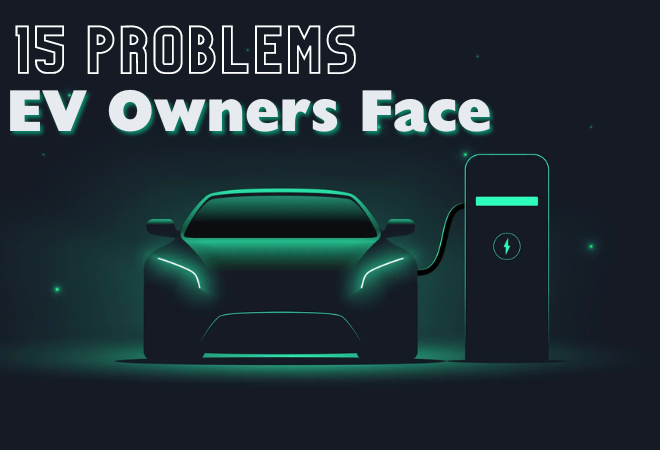Car Dealers Double Down On Opposition To EV Requirements

Table of Contents
Financial Concerns Drive Dealer Opposition to EV Mandates
Dealerships argue that the mandated shift to EVs presents a significant financial challenge, threatening their profitability and long-term viability. The high costs associated with adapting to this new technology are a primary driver of their resistance. Several key financial burdens are at play:
-
High upfront investment in EV infrastructure: Dealerships require substantial investments to install the necessary charging stations, specialized tools, and equipment for servicing electric vehicles. This represents a significant capital expenditure that many smaller dealerships may struggle to afford.
-
Reduced profit margins on EVs compared to gasoline vehicles: Currently, the profit margins on EVs are generally lower than those on gasoline-powered cars. This is due to several factors, including higher manufacturing costs and increased competition.
-
Need for extensive employee training on EV technology and maintenance: EVs require specialized knowledge and skills for maintenance and repair. Training existing staff and hiring new technicians proficient in EV technology represents a considerable investment.
-
Uncertainty surrounding consumer demand and market adoption rates: Dealerships are hesitant to invest heavily in EV infrastructure and training when there's uncertainty about the speed of consumer adoption and the long-term viability of the EV market.
-
Difficulty in forecasting ROI on EV investments: The long-term return on investment for EV infrastructure and training is difficult to predict, adding to the financial risk dealerships face.
Dealerships contend that the financial strain imposed by these requirements is unsustainable, especially for smaller businesses, and significantly contributes to their opposition to EV mandates.
Concerns Regarding Consumer Readiness for EV Adoption
Beyond financial concerns, car dealerships also express deep concern about the level of consumer readiness for widespread EV adoption. Several key factors contribute to this apprehension:
-
Range anxiety remains a key barrier for many potential EV buyers: The limited driving range of some EVs, coupled with concerns about the availability of charging stations, continues to deter many potential buyers.
-
Lack of widespread public charging infrastructure, particularly in rural areas: The uneven distribution of public charging stations, particularly in less densely populated areas, is a major impediment to EV adoption.
-
Misconceptions and lack of awareness about EV technology and benefits: Many consumers still harbor misconceptions about EV technology, performance, and maintenance. Increased public education is needed to overcome these barriers.
-
Higher initial purchase price of EVs compared to gasoline vehicles: The higher upfront cost of EVs compared to gasoline-powered vehicles remains a significant barrier to entry for many consumers.
-
Concerns about the long-term value and resale value of electric vehicles: Uncertainty surrounding the long-term value and resale value of EVs also affects consumer purchasing decisions.
Dealerships argue that until these consumer concerns are addressed and widespread adoption occurs organically, mandated quotas are premature and could harm both consumers and the industry.
The Impact of EV Mandates on Dealership Business Models
The transition to EVs is not merely a technological shift; it fundamentally alters the established business models of car dealerships. The implications are far-reaching:
-
Potential disruption to traditional dealership business models: The shift towards EVs necessitates significant changes in how dealerships operate, from sales strategies to service department procedures.
-
Need for significant changes in sales and service strategies: Dealerships need to adapt their sales and service strategies to accommodate the unique requirements of EVs, including different maintenance procedures and customer expectations.
-
Challenges in managing EV inventory and servicing needs: Managing EV inventory and providing effective servicing requires new skills, tools, and processes.
-
Potential job displacement due to automation in EV maintenance: Some aspects of EV maintenance may be more automated than traditional vehicle maintenance, potentially leading to job displacement within service departments.
-
Uncertainty about future profitability in an EV-dominated market: Dealerships face uncertainty about their future profitability in a market dominated by EVs, particularly given the financial burdens and adaptations required.
The rapid and mandated nature of this transition leaves many dealerships feeling unprepared and fearful for their long-term survival.
Conclusion
The opposition of car dealers to EV requirements is complex, arising from legitimate financial anxieties, uncertainty about consumer demand, and the disruptive impact on their business models. While the transition to electric vehicles is undeniably crucial for environmental sustainability, addressing the concerns of dealerships is critical for a smooth and equitable transformation. Open communication, collaboration, and support are necessary to develop solutions that alleviate these concerns and pave the way for a successful and widespread adoption of electric vehicles. Let's work together to find common ground regarding EV requirements and build a future where electric cars thrive alongside a healthy and sustainable automotive retail sector.

Featured Posts
-
 High Stock Valuations Bof As Rationale For A Positive Outlook
Apr 28, 2025
High Stock Valuations Bof As Rationale For A Positive Outlook
Apr 28, 2025 -
 Starbucks Union Rejects Companys Proposed Wage Increase
Apr 28, 2025
Starbucks Union Rejects Companys Proposed Wage Increase
Apr 28, 2025 -
 The Future Of Browsers A Conversation With Perplexitys Ceo On The Ai Revolution And Competition With Google
Apr 28, 2025
The Future Of Browsers A Conversation With Perplexitys Ceo On The Ai Revolution And Competition With Google
Apr 28, 2025 -
 Yankees Lose To Blue Jays As Devin Williams Meltdown Continues
Apr 28, 2025
Yankees Lose To Blue Jays As Devin Williams Meltdown Continues
Apr 28, 2025 -
 Yankees Series Comeback Judge And Goldschmidts Crucial Roles
Apr 28, 2025
Yankees Series Comeback Judge And Goldschmidts Crucial Roles
Apr 28, 2025
Latest Posts
-
 A Look Back The 2000 Yankees Joe Torre And Andy Pettittes Crucial Win
Apr 28, 2025
A Look Back The 2000 Yankees Joe Torre And Andy Pettittes Crucial Win
Apr 28, 2025 -
 2000 Yankees Season Joe Torres Managerial Decisions And Pettittes Dominance Against The Twins
Apr 28, 2025
2000 Yankees Season Joe Torres Managerial Decisions And Pettittes Dominance Against The Twins
Apr 28, 2025 -
 2000 Yankees Diary Joe Torres Meetings And Andy Pettittes Shutout Victory
Apr 28, 2025
2000 Yankees Diary Joe Torres Meetings And Andy Pettittes Shutout Victory
Apr 28, 2025 -
 Williams Collapse Hands Yankees Defeat Against Blue Jays
Apr 28, 2025
Williams Collapse Hands Yankees Defeat Against Blue Jays
Apr 28, 2025 -
 Blue Jays Defeat Yankees Devin Williams Another Costly Relief Appearance
Apr 28, 2025
Blue Jays Defeat Yankees Devin Williams Another Costly Relief Appearance
Apr 28, 2025
